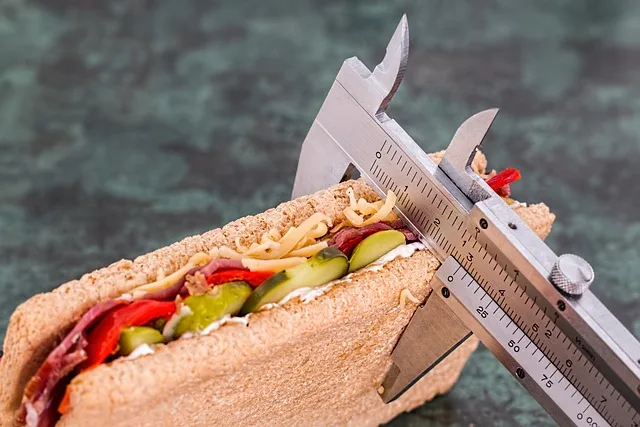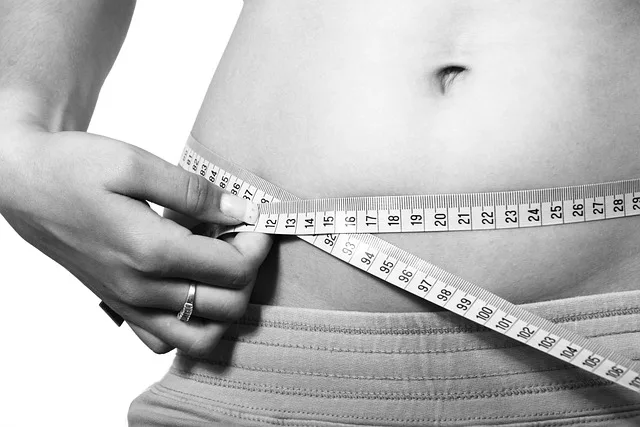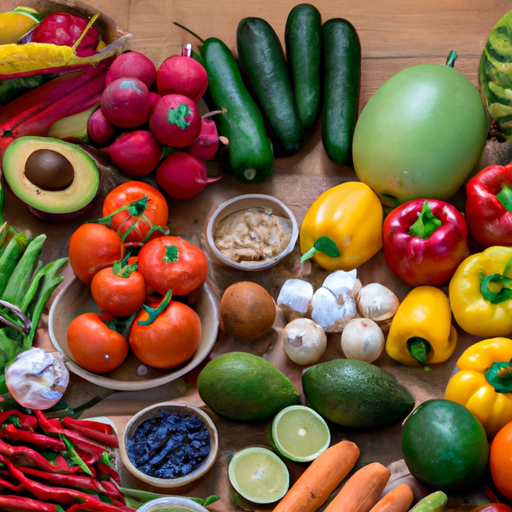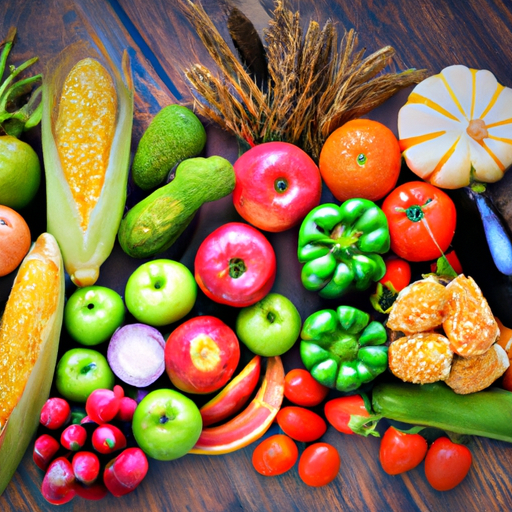Do I have to keep track of my calorie intake while following a Keto diet? In this article, we will explore the importance of counting calories and how it can impact your weight loss journey on the Keto diet. Whether you’re new to Keto or already following the diet, you’ll discover key insights on calorie counting and its role in achieving your health and fitness goals. By the end of this article, you’ll have a clear understanding of whether or not counting calories is necessary for your Keto lifestyle.
What is a Keto Diet?
Before we dive into the question of whether or not you need to count calories on a Keto diet, let’s first understand what a Keto diet actually entails. The Keto diet, short for ketogenic diet, is a low-carb, high-fat diet that has gained popularity in recent years.
The main principle of a Keto diet is to switch your body’s primary fuel source from carbohydrates to fats. By drastically reducing your carbohydrate intake and increasing your fat consumption, your body enters a state of ketosis. In ketosis, your body produces ketones, which are used as an alternative fuel source for your brain and muscles.
Principles of a Keto Diet
The main principles of a Keto diet revolve around manipulating your macronutrient intake. Typically, a Keto diet consists of approximately 70-75% of calories from fat, 20-25% of calories from protein, and only about 5-10% of calories from carbohydrates. This macronutrient distribution helps to keep your body in a state of ketosis.

Are You a Ketosis Master? Take Our Quiz!
Benefits of a Keto Diet
There are several potential benefits to following a Keto diet. Many people turn to this diet for weight loss purposes, as it can be effective in reducing body weight and body fat. Additionally, the Keto diet has been shown to improve blood sugar control, increase HDL cholesterol levels (the “good” cholesterol), and reduce triglyceride levels.
In addition to these health benefits, some people on a Keto diet report increased mental clarity and improved energy levels. The diet can also help reduce cravings and stabilize hunger, making it easier for some individuals to stick to their dietary plan.
Foods to eat on a Keto Diet
When following a Keto diet, it’s important to focus on consuming foods that are low in carbohydrates and high in healthy fats. Some examples of foods that are typically included in a Keto diet are:
- Meats: such as beef, pork, chicken, turkey, and lamb
- Fish and seafood: such as salmon, tuna, shrimp, and mussels
- Eggs: a versatile and nutritious source of protein and fat
- Dairy products: including full-fat cheese, butter, and heavy cream
- Healthy fats: such as avocados, olive oil, coconut oil, and nuts
- Non-starchy vegetables: such as leafy greens, broccoli, cauliflower, and peppers
It’s important to note that foods such as grains, legumes, most fruits, and high-carb vegetables like potatoes and corn are typically restricted on a Keto diet, as they are higher in carbohydrates.

Counting Calories on a Keto Diet
Now let’s address the burning question: do you need to count calories on a Keto diet? The answer is not a simple yes or no. Counting calories can be a useful tool for weight management, but it’s not always necessary, especially on a Keto diet.
Importance of Calorie Counting
Calorie counting involves tracking the number of calories you consume in a day to ensure you are in an appropriate energy balance. In other words, you want to consume enough calories to meet your body’s needs, but not so many that you gain weight.
On a Keto diet, the focus is primarily on manipulating macronutrients rather than counting calories. By restricting carbohydrates and increasing fat intake, you naturally limit your caloric intake. This can lead to weight loss without the need for strict calorie counting.
Effects of Caloric Intake on Weight Loss
While counting calories may not be essential on a Keto diet, it’s important to understand the role of caloric intake in weight loss. Ultimately, weight loss occurs when there is an energy deficit, meaning you consume fewer calories than you burn.
By following a Keto diet and reducing your carbohydrate intake, you naturally reduce your caloric intake. Many people experience weight loss on a Keto diet without meticulously counting calories. However, for some individuals, especially those who have reached a weight loss plateau, it may be necessary to adjust caloric intake to continue making progress.
Tracking Macros for Keto Diet
Instead of strictly counting calories, many individuals on a Keto diet choose to track their macronutrient intake. This involves monitoring the grams of fat, protein, and carbohydrates consumed in each meal. By tracking macros, you can ensure that you’re staying within the appropriate range for a Keto diet.
There are various apps and online trackers available that can help you track your macros. These tools can be especially helpful when you’re just starting out on a Keto diet and need guidance to ensure you’re staying in the appropriate range for your goals.
Challenges of Calorie Counting on a Keto Diet
While counting calories may not be necessary for everyone on a Keto diet, there are some challenges to consider if you choose to do so.
Difficulties in Accurate Calorie Measurement
One of the challenges of counting calories on a Keto diet is accurately measuring the calories in different foods. While packaged foods often come with nutrition labels that provide calorie information, it can be more challenging to calculate the calories in homemade or restaurant meals.
Inconsistencies in Calorie Values of Foods
Another challenge with calorie counting on a Keto diet is the variability in calorie values for different foods. The caloric content of a food can vary depending on factors such as the cooking method, ripeness, and even the brand. This can make it difficult to accurately estimate your caloric intake.
Factors Affecting Caloric Utilization on Keto
Additionally, there are various factors that can affect how your body utilizes calories on a Keto diet. For example, when you’re in a state of ketosis, your body may become more efficient at utilizing calories, making it harder to estimate your true energy needs.
Furthermore, individual variations in metabolism, activity levels, and body composition can affect how many calories you actually burn in a day. This makes it difficult to rely solely on calorie counting for weight management on a Keto diet.

Determining Caloric Needs on a Keto Diet
If you do choose to count calories on a Keto diet, it’s important to determine your individual caloric needs. This can be done by calculating your Basal Metabolic Rate (BMR).
Basal Metabolic Rate (BMR)
Your BMR represents the number of calories your body needs to perform basic physiological functions at rest. It takes into account factors such as your height, weight, age, and gender. There are online calculators available that can help you estimate your BMR.
Factors Influencing Caloric Requirements
In addition to your BMR, there are several other factors that can influence your caloric requirements. These include your activity level, muscle mass, and goals (whether you’re looking to lose, maintain, or gain weight).
Calculating Energy Deficit for Weight Loss
If your goal is weight loss, you’ll need to create an energy deficit by consuming fewer calories than you burn. The general rule of thumb is to aim for a deficit of around 500-1,000 calories per day, which can result in a weight loss of approximately 1-2 pounds per week.
It’s important to note that while creating an energy deficit is necessary for weight loss, it’s equally important not to create too large of a deficit. Severely restricting calories can lead to nutrient deficiencies, metabolic slowdown, and feelings of deprivation, which can ultimately hinder your progress.
Alternatives to Calorie Counting on a Keto Diet
If the challenges and limitations of calorie counting on a Keto diet seem daunting, don’t worry. There are alternative approaches that can still help you achieve your weight loss and health goals.
Concept of Intuitive Eating
One alternative to strict calorie counting is the concept of intuitive eating. This involves tuning in to your body’s hunger and fullness cues and eating mindfully. Instead of relying on external numbers, you focus on internal signals to guide your food choices and portion sizes.
Listening to Hunger and Fullness Cues
When practicing intuitive eating, you pay attention to your body’s signals of hunger and fullness. This can help you develop a healthier relationship with food and avoid overeating or undereating.
Experimenting with Meal Timing and Portion Control
Another alternative to calorie counting is experimenting with meal timing and portion control. Some people find success in following an intermittent fasting schedule, where they limit their eating window to a specific time period during the day.
Additionally, being mindful of portion sizes can help ensure that you’re not overconsuming calories, even without meticulously counting them. By focusing on eating nutrient-dense foods and paying attention to portion sizes, you can still make progress on a Keto diet without counting calories.

Potential Benefits of Counting Calories on a Keto Diet
While calorie counting may not be necessary for everyone on a Keto diet, it does come with some potential benefits.
Creating Awareness of Caloric Intake
Counting calories can help create awareness of your overall caloric intake and make you more mindful of your food choices. It can serve as a reality check, especially if you’ve been unknowingly consuming excess calories.
Identifying High-Calorie Foods and Habits
By counting calories, you can also identify which foods or habits contribute the most calories to your diet. This can help you make informed choices and adjust your eating habits accordingly.
Managing Plateaus and Weight Loss Progress
For some individuals, counting calories can be a useful tool for managing weight loss plateaus. By tracking your caloric intake, you can make adjustments as needed to break through a plateau and continue making progress toward your goals.
Drawbacks of Strict Calorie Counting on a Keto Diet
While there are potential benefits to counting calories, it’s important to consider the drawbacks as well.
Obsessive Behavior and Negative Relationship with Food
For some individuals, counting every calorie can lead to obsessive behavior and a negative relationship with food. It can become all-consuming and take away from the enjoyment of eating.
Potential Disruption of Ketosis
Strictly counting calories can also potentially disrupt your state of ketosis. If you become too focused on calorie counting, you may inadvertently end up consuming more carbohydrates or protein than is appropriate for a Keto diet.
Loss of Enjoyment and Sustainability
Lastly, strict calorie counting can sometimes lead to a loss of enjoyment and sustainability in your dietary choices. It can create a mindset of restriction and deprivation, making it difficult to maintain the diet in the long term.

Finding Balance: A Hybrid Approach
Instead of considering calorie counting as an all-or-nothing approach, it may be more beneficial to find a balance that works for you.
Combining Calorie Awareness with Keto Principles
You can combine calorie awareness with the principles of a Keto diet by monitoring your macronutrient intake and being mindful of portion sizes. This can help you stay within an appropriate energy range for weight management without getting caught up in strict calorie counting.
Using Calorie Counting as a Tool, Not a Restriction
Rather than viewing calorie counting as a restrictive measure, think of it as a tool that provides information. It can help you make more informed choices about portion sizes and food selections without becoming overly fixated on numbers.
Adapting Caloric Intake for Long-Term Maintenance
As you progress on your Keto journey, your caloric needs may change. It’s important to adapt your caloric intake based on your goals and your body’s response. This may involve periodic recalculations of your BMR and adjustments to your macronutrient ratios.
Consulting a Professional for Individualized Guidance
If you’re unsure whether or not you should count calories on a Keto diet, it’s always a good idea to consult with a registered dietitian or healthcare professional. They can provide personalized advice based on your unique needs and goals.
Working with a Registered Dietitian
A registered dietitian can help you navigate the challenges of counting calories on a Keto diet and provide guidance on macronutrient distribution, portion sizes, and long-term weight management.
Getting Personalized Advice for Caloric Needs
A professional can also help determine your individual caloric needs based on factors such as your activity level, metabolism, and overall health status. This can ensure that you’re on the right track and making progress towards your goals.
Addressing Unique Health Considerations
If you have any underlying health conditions or special dietary needs, a professional can provide tailored advice to meet your specific requirements. They can help you optimize your nutrient intake while still following the principles of a Keto diet.
Conclusion
In conclusion, whether or not you need to count calories on a Keto diet depends on your individual goals and preferences. While calorie counting can be a helpful tool for weight management, it’s not always necessary on a Keto diet.
Weight management on a Keto diet involves a combination of manipulating macronutrients, tracking macros, paying attention to portion sizes, and listening to your body’s hunger and fullness cues. It’s important to find a balance that works for you and supports your long-term health and sustainability.
By personalizing your approach and consulting with a professional if needed, you can optimize your Keto journey and achieve your desired results. Remember, the most important thing is to embrace a sustainable and enjoyable approach to food and health.
